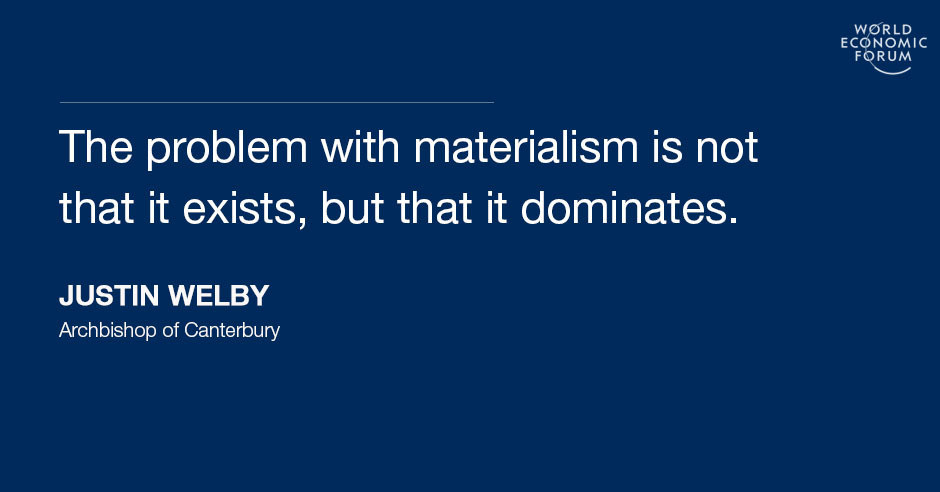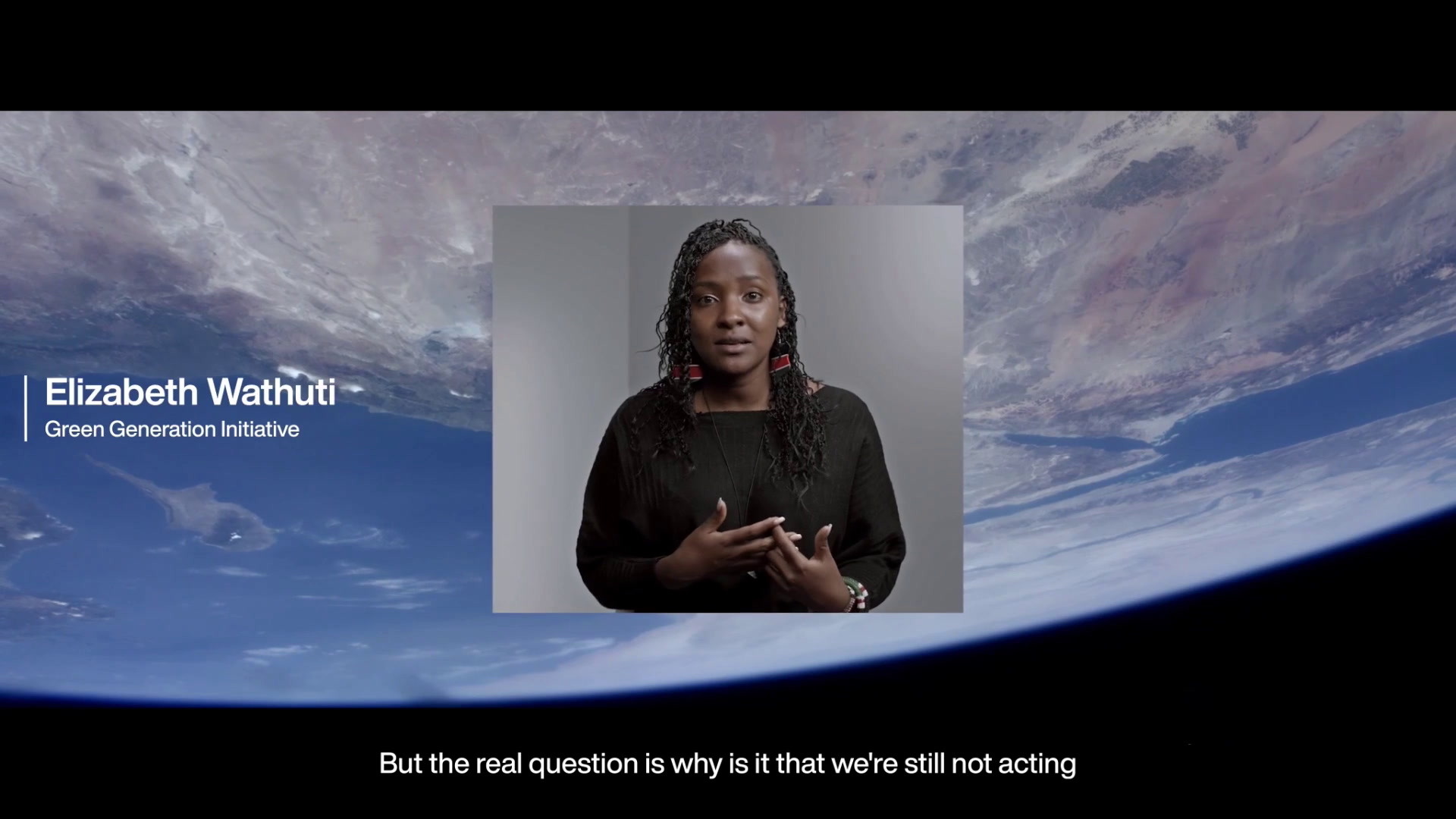Money controls our lives. It's time to rethink our relationship with the almighty dollar

'Materialism shouts so loudly that it overrides our caring about other things' Image: REUTERS/Toby Melville

Get involved with our crowdsourced digital platform to deliver impact at scale
Stay up to date:
Roles of Religion
This year, 1 March marks the beginning of Lent in the Western church. For many, it will be a time to give up a personal vice – numerous people opt out of chocolate or alcohol, although fasting from social networks is becoming increasingly popular. It is a time to go without, and in doing so, draw closer to the one whom Christians follow, Jesus Christ. It is an opportunity to replace something that has some control over us with the liberating relationship we can have with Jesus.
Recently, I have been spending a lot of time thinking about the control that money has over our lives. In fact, for better or worse, I wrote a book about the relationship we have with money. It is called Dethroning Mammon and will be used by some churches this coming Lent as a study book that digs a little deeper into this relationship.
To me, it seems that the more interconnected the world becomes, the more power is held over individuals and nations by economics, money and flows of finance. In so many human crises, money plays a part – it is treated as both the problem and the solution. In the Gospels, the name Jesus gives to this force is Mammon.

Spending time at the World Economic Forum with people who lead countries, international organizations and corporations, is deeply enjoyable and educational. The theme of the 2017 Annual Meeting, Responsive and Responsible Leadership, offers an opportunity to reflect on how our personal and corporate attitudes to money and economics affect how we see the world and those with whom we share it.
The problem with materialism is not that it exists, but that it dominates. It shouts so loudly that it overrides our caring about other things. This is demonstrated particularly in how we measure things and ascribe value. If we can’t measure something, then there is a tendency not to value it as much as something that is easily measurable.
A book that is a particular favourite of mine is The Shield of Achilles by Philip Bobbitt. In it, amongst other things, he charts the evolution of the state. One of his most perceptive theses is that we no longer live in an age of the nation state, but rather of the market state. In the market state, the success or failure of the state and its government is measured entirely by the capacity to consume more or less. Economics is an end in and of itself, rather than a tool by which we pursue the common good.
As I have been thinking and writing about these matters, I have actively tried to avoid the typically negative attitude towards money that is often found in the church. Supply and demand, risk and reward, the gift of the free market to agreeably locate goods, the need for balance in the flows of money within the economy – all continue to be relevant. But they are not God.
Money itself isn’t negative or bad, but our attitude towards money can certainly have a deeply negative impact on our relationships and priorities.
The challenge, then, is to be increasingly aware of how money affects us as individuals, as well as at a systemic level. Very often, the more we have or are responsible for, the harder we have to work at maintaining this awareness and building habits into our lives that dethrone the emotional and ethical control that economics or money holds over us.
Don't miss any update on this topic
Create a free account and access your personalized content collection with our latest publications and analyses.
License and Republishing
World Economic Forum articles may be republished in accordance with the Creative Commons Attribution-NonCommercial-NoDerivatives 4.0 International Public License, and in accordance with our Terms of Use.
The views expressed in this article are those of the author alone and not the World Economic Forum.
Related topics:
The Agenda Weekly
A weekly update of the most important issues driving the global agenda
You can unsubscribe at any time using the link in our emails. For more details, review our privacy policy.
More on Roles of ReligionSee all
Noorzehra Zaidi
March 28, 2023
Natasha Mikles
November 4, 2021
Claire Jenik
August 26, 2021
Menna A. Farouk
August 26, 2021
Philip Pullella and Giulia Segreti
July 12, 2021






